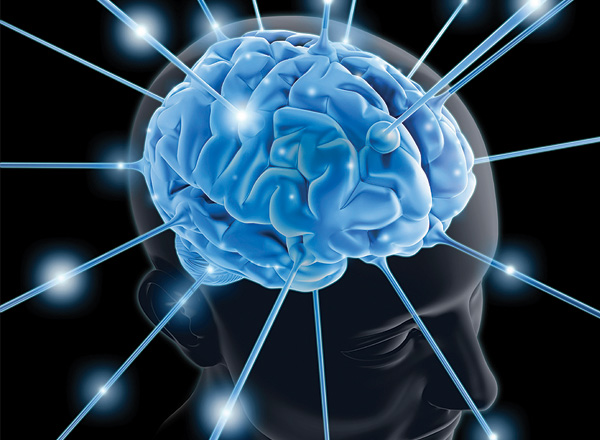Essential Steps to Keeping Your Mind Sharp and Active
 |
| Keeping Your Mind Sharp and Active // Depositephotos |
* How to Keep Your Brain Active and Healthy
The brain is one of the most complex and vital organs in the human body, responsible for controlling all of our thoughts, feelings, and actions. To maintain a healthy and active brain, it is essential to engage in activities that promote brain health, such as exercise, a balanced diet, and mental stimulation. This article will explore some of the key ways to support brain health and maintain a healthy and active brain.
> Exercise
Regular exercise is essential for maintaining good brain health. Studies have shown that physical activity can increase the production of brain-derived neurotrophic factor (BDNF), a protein that helps to support the growth and survival of brain cells. Exercise can also improve cognitive function, reduce stress, and enhance mood. Aim to get at least 30 minutes of moderate-intensity exercise most days of the week, such as brisk walking, jogging, cycling, or swimming.
> Diet
Eating a balanced diet that includes plenty of fruits, vegetables, whole grains, and lean protein is critical for maintaining brain health. Foods rich in antioxidants, such as berries and leafy greens, help to protect the brain from damage caused by free radicals. Additionally, omega-3 fatty acids, found in fatty fish such as salmon and sardines, can help to improve brain function and protect against age-related decline.
.> Mental stimulation
Challenging your brain with mental stimulation is essential for keeping it active and healthy. This can include activities such as reading, playing games, learning a new skill, or solving puzzles. Studies have shown that engaging in mentally stimulating activities can help to maintain cognitive function and reduce the risk of developing Alzheimer’s disease and other forms of dementia.
> Stress management
Chronic stress can have a negative impact on brain health, so it is important to find effective ways to manage stress. This can include activities such as yoga, meditation, deep breathing, and journaling. Regular physical activity can also help to reduce stress levels and improve overall brain health.
 |
| Your Mind Sharp and Active // Hoag Medical |
> Sleep
Getting enough sleep is critical for maintaining brain health. During sleep, the brain is able to consolidate and process new information, which helps to improve memory and cognitive function. Aim to get 7-9 hours of quality sleep each night, and avoid activities that can interfere with sleep, such as using electronic devices before bed.
> Hydration
Drinking plenty of water is essential for maintaining brain health. The brain is made up of about 75% water, and even mild dehydration can have a negative impact on cognitive function and mood. Aim to drink at least 8 glasses of water each day to stay hydrated and support brain health.
> Social interaction
Maintaining strong social connections is important for brain health. Studies have shown that social interaction can improve mood, reduce stress, and enhance cognitive function. Make an effort to engage in social activities regularly, such as spending time with friends and family, volunteering, or joining a social club
Vitamin and mineral supplementation: Certain vitamins and minerals, such as B vitamins, vitamin E, and magnesium, play a critical role in brain health. A balanced diet that includes plenty of fruits, vegetables, and whole grains can provide many of these essential nutrients, but for some people, supplementing with a high-quality multivitamin may be necessary to ensure adequate intake.
Limit alcohol and drug use: Excessive alcohol and drug use can have a negative impact on brain health and cognitive function. Drinking alcohol in moderation, defined as no more than one drink per day for women and no more than two drinks per day for men, may have some health benefits, but excessive drinking can damage the brain and lead to cognitive decline. Illegal drug use can also have a toxic effect on the brain and should be avoided.
Manage chronic health conditions: Chronic health conditions such as high blood pressure, diabetes, and heart disease can have a negative impact on brain health. It is important to manage these conditions effectively to maintain good brain health. This may involve lifestyle changes, such as exercise and diet modifications, or medical treatment, depending on the specific condition.
Take control of your brain health and support a healthy, active brain with the essential steps and techniques outlined in our guide to maximizing brain health.
supporting brain health and maintaining a healthy and active brain requires a multi-faceted approach that includes a combination of lifestyle changes, such as regular exercise and a balanced diet, and interventions, such as vitamin supplementation and chronic health condition management. By making a commitment to these activities, you can help to protect your brain from decline and maintain optimal brain health throughout your lifetime.commitment to these.
R E A D : Rising STD Rates: A Call to Action for Prevention, Education, and Access to Care

No comments:
Post a Comment